 W
WMarie-Henriette Alimen was a French paleontologist and geologist. Alimen studied at École Normale Supérieure, later going on to teach at Musée de l'Homme, and serve as president of Société géologique de France. Alimen's career was mainly focused on Quaternary geology in France and Africa while working for Centre national de la recherche scientifique. She later became a Knight of both the Legion of Honour and the Ordre des Palmes Académiques.
 W
WCamille Arambourg was a French vertebrate paleontologist. He conducted extensive field work in North Africa. In the 1950s he argued against the prevailing model of Neanderthals as brutish and simian.
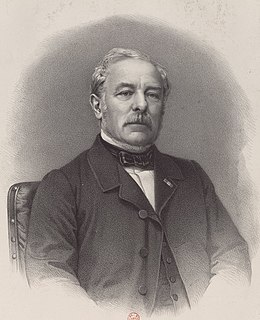 W
WÉtienne Jules Adolphe Desmier de Saint-Simon, Vicomte d'Archiac was a French geologist and paleontologist.
 W
WAuguste Aymard (1808–1889) was a French prehistorian and palaeontologist who lived and died in Puy-en-Velay (Haute-Loire). He described the fossil Entelodon magnus and the fossil genera Anancus and Amphechinus. Auguste Aymard was the archivist for the Departement Haute-Loire and Conservateur of Musée du Puy-en-Velay. He made archaeological discoveries in Puy-en-Velay, Polignac, Haute-Loire and Espaly-Saint-Marcel.
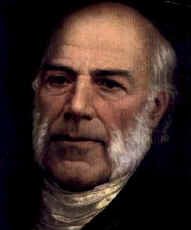 W
WJoachim Barrande was a French geologist and palaeontologist.
 W
WCharles Eugene Barrois was a French geologist and palaeontologist.
 W
WPaul Charles Édouard Bertrand was a French paleobotanist. He was the son of botanist Charles Eugène Bertrand (1851-1917).
 W
WPierre-Marcellin Boule, better known as merely Marcellin Boule, was a French palaeontologist, geologist, and anthropologist.
 W
WAdolphe-Théodore Brongniart FRS FRSE FGS was a French botanist. He was the son of the geologist Alexandre Brongniart and grandson of the architect, Alexandre-Théodore Brongniart. Brongniart's pioneering work on the relationships between extinct and existing plants has earned him the title of father of paleobotany. His major work on plant fossils was his Histoire des végétaux fossiles (1828–37). He wrote his dissertation on the Buckthorn family (Rhamnaceae), an extant family of flowering plants, and worked at the Muséum national d'Histoire naturelle in Paris until his death. In 1851, he was elected a foreign member of the Royal Swedish Academy of Sciences. This botanist is denoted by the author abbreviation Brongn. when citing a botanical name.
 W
WCharles Jules Edmée Brongniart was a French entomologist and paleontologist.
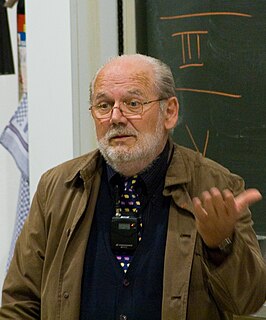 W
WMichel Brunet is a French paleontologist and a professor at the Collège de France. In 2001 Brunet announced the discovery in Central Africa of the skull and jaw remains of a late Miocene hominid nicknamed Toumaï. These remains may predate the earliest previously known hominid remains, Lucy, by over three million years; however, this conclusion is the subject of a significant controversy.
 W
WCécile Mourer-Chauviré is a French paleontologist specializing in birds of the Eocene and the Oligocene. In her early career, she discovered with her husband the Laang Spean cave site of prehistoric humans in Cambodia.
 W
WMaurice Armand Chaper was a French geologist and mining engineer.
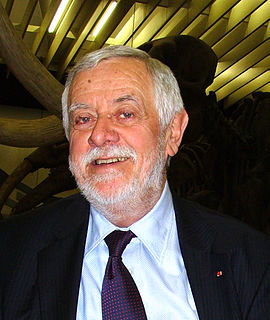 W
WYves Coppens is a French anthropologist and co-discoverer of the fossil known as "Lucy". A graduate from the University of Rennes and Sorbonne, he has studied ancient hominids and has had multiple published works on this topic, and has also produced a film. On Saturday, 18 October 2014, Professor Coppens was named an Ordinary Member of the Pontifical Academy of Sciences by Pope Francis.
 W
WMaurice Cossmann, full name Alexandre Édouard Maurice Cossmann was a French paleontologist and malacologist.
 W
WGustave Honoré Cotteau was a French judge, naturalist and paleontologist.
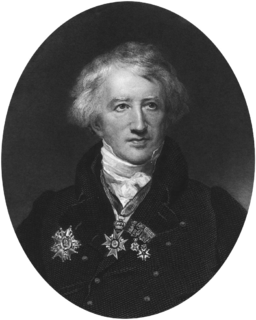 W
WJean Léopold Nicolas Frédéric, Baron Cuvier, known as Georges Cuvier, was a French naturalist and zoologist, sometimes referred to as the "founding father of paleontology". Cuvier was a major figure in natural sciences research in the early 19th century and was instrumental in establishing the fields of comparative anatomy and paleontology through his work in comparing living animals with fossils.
 W
WCharles Jean Julien Depéret was a French geologist and paleontologist. He was a member of the French Academy of Sciences, the Société géologique de France and dean of the Science faculty of Lyon.
 W
WJoseph Henri Ferdinand Douvillé, also known as Henri Douvillé, was French paleontologist, geologist and malacologist. Douvillé worked as a mining engineer in Bourges (1872) and Limoges (1874), afterwards serving as professeur suppléant of paleontology at the École des Mines. From 1881 to 1911 he was a professor of paleontology at the École des Mines.
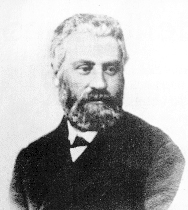 W
WEugène Eudes-Deslongchamps was a French paleontologist and naturalist born in Caen, the son of paleontologist Jacques Amand Eudes-Deslongchamps (1794–1867). He died at Château Matthieu, Calvados.
 W
WHenri Filhol was a French medical doctor, malacologist and naturalist born in Toulouse. He was the son of Édouard Filhol (1814-1883), curator of the Muséum de Toulouse.
 W
WLouis Édouard Gourdan de Fromentel was a French physician and paleontologist known for his study of fossil coral polyps and sponges.
 W
WJean Albert Gaudry, French geologist and palaeontologist, was born at St Germain-en-Laye, and was educated at the Collège Stanislas de Paris. He was a notable proponent of theistic evolution.
 W
WPaul Gervais full name François Louis Paul Gervaise was a French palaeontologist and entomologist.
 W
WClaude Jourdan was a French zoologist and paleontologist.
 W
WÉdouard Lartet was a French geologist and paleontologist, and a pioneer of Paleolithic archaeology.
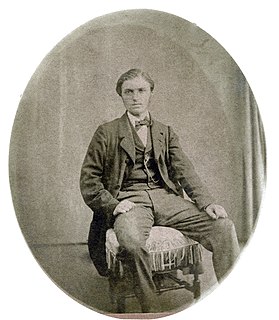 W
WLouis Lartet was a French geologist and paleontologist. He discovered the original Cro-Magnon skeletons.
 W
WRené Lavocat was a French paleontologist who described several genera of African dinosaurs including the sauropod Rebbachisaurus, as well as several extinct mammals such as the family Kenyamyidae. The mammal Lavocatia, the Notosuchian Lavocatchampsa and phorusrhacid Lavocatavis are named after him.
 W
WAndré Leroi-Gourhan was a French archaeologist, paleontologist, paleoanthropologist, and anthropologist with an interest in technology and aesthetics and a penchant for philosophical reflection.
 W
WPhilippe Matheron full name Pierre Philippe Émile Matheron was a French palaeontologist and geologist. He was born on October 29, as the son of Jean Esprit Matheron and Rosalie Françoise Sansan. On June 7, 1896, Matheron was awarded a gold medal by the Academy of Marseille to mark his 60th year as an academic. Matheron named the dinosaurs Hypselosaurus and Rhabdodon, and the crocodilian Crocodylus affuvelensis in 1869, in addition to describing the first eggshells that are now considered dinosaurs.
 W
WAlcide Charles Victor Marie Dessalines d'Orbigny was a French naturalist who made major contributions in many areas, including zoology, palaeontology, geology, archaeology and anthropology.
 W
WAlphonse Péron was a French soldier and amateur naturalist. He used his spare time to pursue his interest in paleontology, and authored or coauthored several important works on the geology and paleontology of France and Algeria.
 W
WÉdouard Louis Stanislas Piette was a French archaeologist and prehistorian.
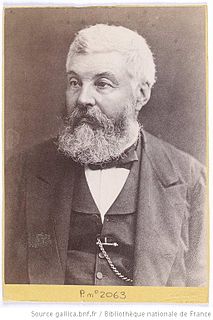 W
WNicolas Auguste Pomel was a French geologist, paleontologist and botanist. He worked as a mines engineer in Algeria and became a specialist in north African vertebrate fossils. He was Senator of Algeria for Oran from 1876 to 1882.
 W
WJean-François-Albert du Pouget, Marquis de Nadaillac was a French anthropologist and palaeontologist.
 W
WCharles Schlumberger was a French paleontologist, known for his studies of Foraminifera, both living and fossil species.
 W
WPhilippe Taquet is a French paleontologist who specializes in dinosaur systematics of finds primarily in northern Africa.
 W
WPierre Teilhard de Chardin was a French idealist philosopher and Jesuit Catholic priest who trained as a paleontologist and geologist and took part in the discovery of the Peking Man. He conceived the vitalist idea of the Omega Point, and he developed with Vladimir Vernadsky the concept of noosphere. Teilhard's ideas had a profound influence on the New Age movement.
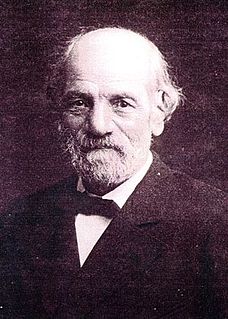 W
WOlry Terquem was a French pharmacist and paleontologist. He was a nephew of mathematician Olry Terquem (1782–1862).
 W
WHenry Bernard Alfred Testot-Ferry also known as Henry de Ferry was a French geologist, archeologist and paleontologist. He was discoverer of the prehistoric site at the Rock of Solutré.
 W
WPhilippe Édouard Poulletier de Verneuil was a French paleontologist.